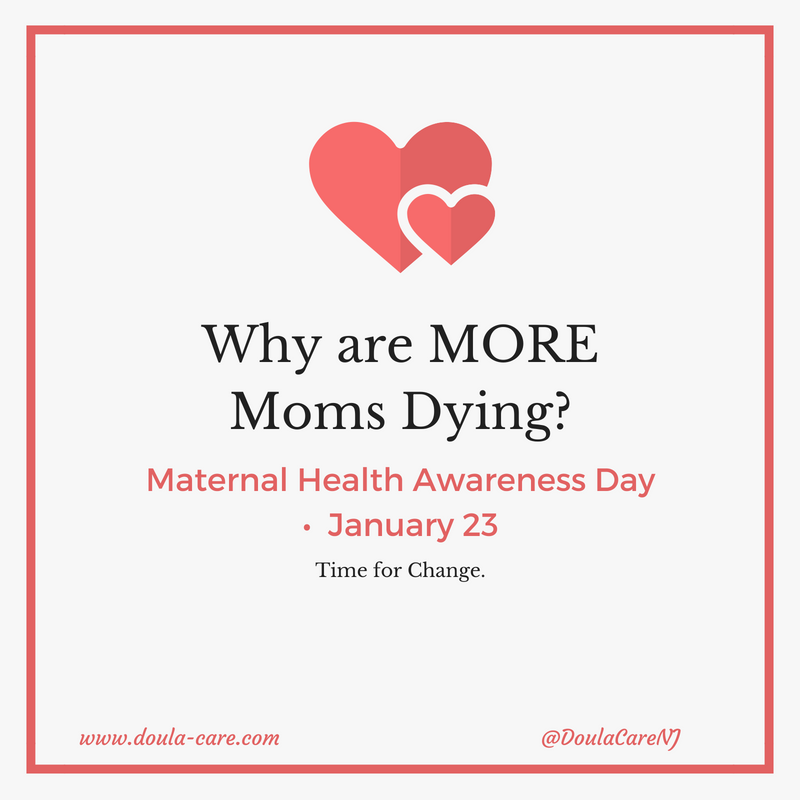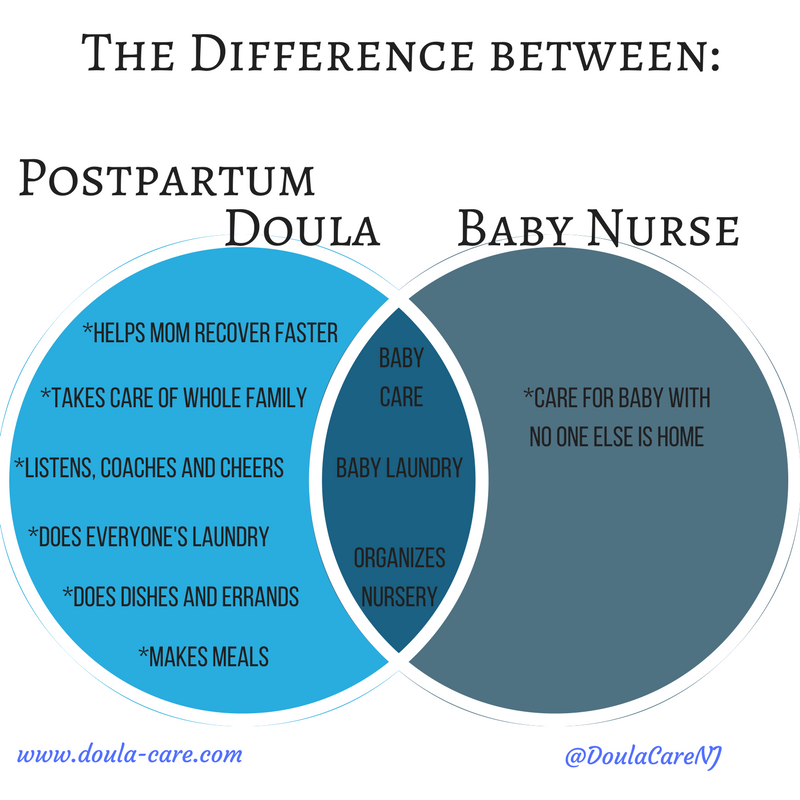 We are the only industrialized country with RISING maternal mortality rates. Perhaps, like me, you are shocked. On average, 2 women die each day following childbirth in the U.S. One Hundred more have complications severe enough to be re-admitted to the hospital. I'm still struggling to get my mind around this. But, the good news is, 40-50% of these deaths are preventable. And, 30-40% of severe complications are preventable. Where do we begin? 1: WOMEN-CENTERED CARE We have a history of focusing on the babies to the exclusion of the mothers. The moms are often an after-thought in prenatal care, birthing and certainly in Postpartum. A woman's emotional, mental, and physical health have a tremendous impact on their baby's health and survival. What if we started truly listening and responding to women's needs and concerns? Tragically, the stats are far more bleak for minority women! "African American women are five times more likely to die as their white counterparts." 2: FOLLOW-UP CARE FOR HIGH RISK PATIENTS Most maternal deaths are from obstetric hemorrhage and severe hypertension or preeclampsia. Typically, these moms leave the hospital and are not scheduled for any follow-up care for 6 weeks. Dr. Karen Koscica said that all high risk patients should be seen 1-2 weeks postpartum. 3. POSTPARTUM RECOVERY EDUCATION While most other countries and cultures have a lying-in period (where new mom stays in bed for 2-5 weeks), we have NOTHING here. Often just discharge papers saying not to drive for 2 weeks. These moms are coming home 2-3 days after birth, some after major abdominal surgery, and there is no support or help in place. The physical demands of postpartum recovery are HUGE....especially since most women are trying to heal from pregnancy, birth, and possibly surgery, while waking every 2-3 hours to care for a newborn and breastfeeding! We can do better! We can prepare moms for what to expect and help them choose postpartum care. We can educate partners, friends and family on how to take care of mothers while they recover. I hope to see Postpartum Doulas covered and or the expense reimbursed by insurance...But, in the meantime, we can realize that the stakes are literally life or death. For more information, please visit: http://www.tarahansenfoundation.com/www.tarahansenfoundation.com/ http://www.nj.gov/health/news/2018/approved/20180123a.shtmlwww.nj.gov/health/news/2018/approved/20180123a.shtml
0 Comments
What is the difference between a Baby Nurse and a Postpartum Doula? A Baby Nurse cares for your baby while a Postpartum Doula cares for your whole family.
A Baby Nurse is a "non-clinical newborn care specialist with extensive hands-on baby infant experience." A Baby Nurse will change diapers, feed your baby or bring baby to you for feedings, organize your nursery, bathe and care for your baby. A Baby Nurse will also do the baby's laundry. A Postpartum Doula cares for the whole family. (The mother is the primary focus because that is the best way to insure baby's optimal health and development.) A Postpartum Doula does all the baby care things a Baby Nurse does...And, she'll do YOUR laundry, make meals for your whole family, spend time with your other children, do your dishes, help you heal more quickly and be a source of positive support. Whether you are a first time parent, recovering from birth trauma, facing feeding challenges, or just wanting an objective third party to help without emotional politicking every parenting choice you're making, a Postpartum Doula will help. The Postpartum Doula strives to help you master baby care with confidence, rather than taking it over for you. However, she'll also care for your baby so you can rest, nap, shower, or have a break. Most Postpartum Doulas do not stay alone with your baby. If this is an important factor for you, be sure to ask ahead of time! Baby Nurses and Postpartum Doulas are both fields without consistent regulation. It is important to ask about individual training, experience and CPR certification. Have questions? Please ask! Feel free to comment with your Postpartum Doula or Baby Nurse experience. Pssssst. If you're close to someone who is pregnant or has a baby, this is for you.
New parents are in a sensitive state: sleep deprivation, the emotional rollercoaster of birth and the pressure of trying to maintain their households (or jobs) takes its toll. Most cultures do not expect people to resume their former lives after the birth. They have traditions for supporting the growing family. Mothers are strained the most--babies require round the clock care when new mamas are recovering from birth. Breastfeeding takes up a lot of time and energy in the first few weeks. Because our culture does not recognize the need for extra help in a baby's first weeks, many moms feel inadequate. Here's how you can help. *BE GENTLE! HOW you offer help is as important as WHAT you offer. Be sure to listen to what they want. Be respectful of their space and time--as much as they want to share their baby with you, they also need to rest. *FOOD: New parents need to eat, but have little to no time to shop, cook or prepare food. There are many ways options: home-cooked casseroles, frozen foods, take-out. The point is to get them food and not expect to be entertained in the process. Drop it on their porch or have it delivered. *HOUSEHOLD HELP: This is can be a little more complicated, depending on how well you know the new parents. If they aren't using a service, they'll definitely appreciate help with laundry, running dishwasher, vaccuuming, and generally straightening up. *ERRANDS: Running to the store, dry cleaner, can become very challenging with a newborn. Ask if they need anything from the drug or grocery store. *OLDER CHILDREN/PETS: If this is not their first baby, the older children will really need extra attention. Playdates and park outtings can be a real life saver. Additionally, if they have pets, offer to help with their needs, too. By giving REAL help, you take the pressure off of parents who may feel overwhelmed and not know how to ask you to bring them lunch or take their two year old to the playground. It's too vague to say, "Let me know if you need anything." Step up with specific suggestions. I'll be sharing more specific techniques on how to assemble or be a part of a Welcome Baby Team at Natural Beginnings on Feb. 28, 2013 at 8pm. If you're expecting your first (or third) or if you know someone who is, please come! This presentation is for the whole Welcome Baby Team--Grandparents, relatives, neighbors are encouraged to attend. Donations will benefit the Having Healthy Babies Foundation. For more information: www.naturalbeginningsNJ.com New Jersey has the highest C-Section Rate in the US (39.9%), so I've helped a lot of recovering mamas. Here are a few tips to share with any mamas who are or will be recovering from a Cesarean...And their partners or families!
1--Take it slow. While you had 40 weeks to adjust to pregnancy, your body shifts to non-pregnancy in minutes. Huge hormonal shift + major abdominal surgery + newborn care. Do as little as possible--if you push until you feel it, it's too late. By resting and letting your body recover, you'll reduce your risk of infection and other complications. 2--Probiotics. Your digestive system was artificially stopped and you may have had antibiotics. Get some good probiotics (acidophilus, etc.) ASAP. This will make you more comfortable, help protect you from thrush/yeast, and support your immune system. 3--Epsoms. If you've had IV fluids, you might be more swollen now than before the surgery. Soak your feet in epsom salt bath. (Pour up to a pound in a pot or foot bath and soak for 20 mins. Available at all pharmacies and almost all grocery stores in the first aid section.) Most moms see improvement the first use, but you can do it 2-3 times a day. (Assuming your partner or helper is filling it for you!) 4--Support belt or postpartum support. Most moms have discomfort when their incision-site is moving around. The support will prevent unnecessary motion and offer some mild counterpressure. You can ask for one at the hospital. (Many cultures traditionally wrap all postpartum moms.) 5--Connect with other moms. Especially if you are having a difficult time processing your hospital experience or C-Section--the sooner you share your feelings in a supportive place the better you'll feel. Check out your local ICAN (International Cesarean Awareness Network) or any of these great resources in Monmouth County: Mom Support Resources. Sometimes, being still is harder than being busy. Acknowlede the limitations, give your body the time and energy it needs to heal properly, be gentle to yourself....Your baby needs you to be healthy and strong. By taking proper care now, you'll have a better recovery. Feel free to comment or share your tips! If you (or someone you know) had a C-Section, what helped them the most? |
AuthorPostpartum Doula, Breastfeeding Counselor, Mother of Three. Archives
May 2018
Categories
All
|

 RSS Feed
RSS Feed
